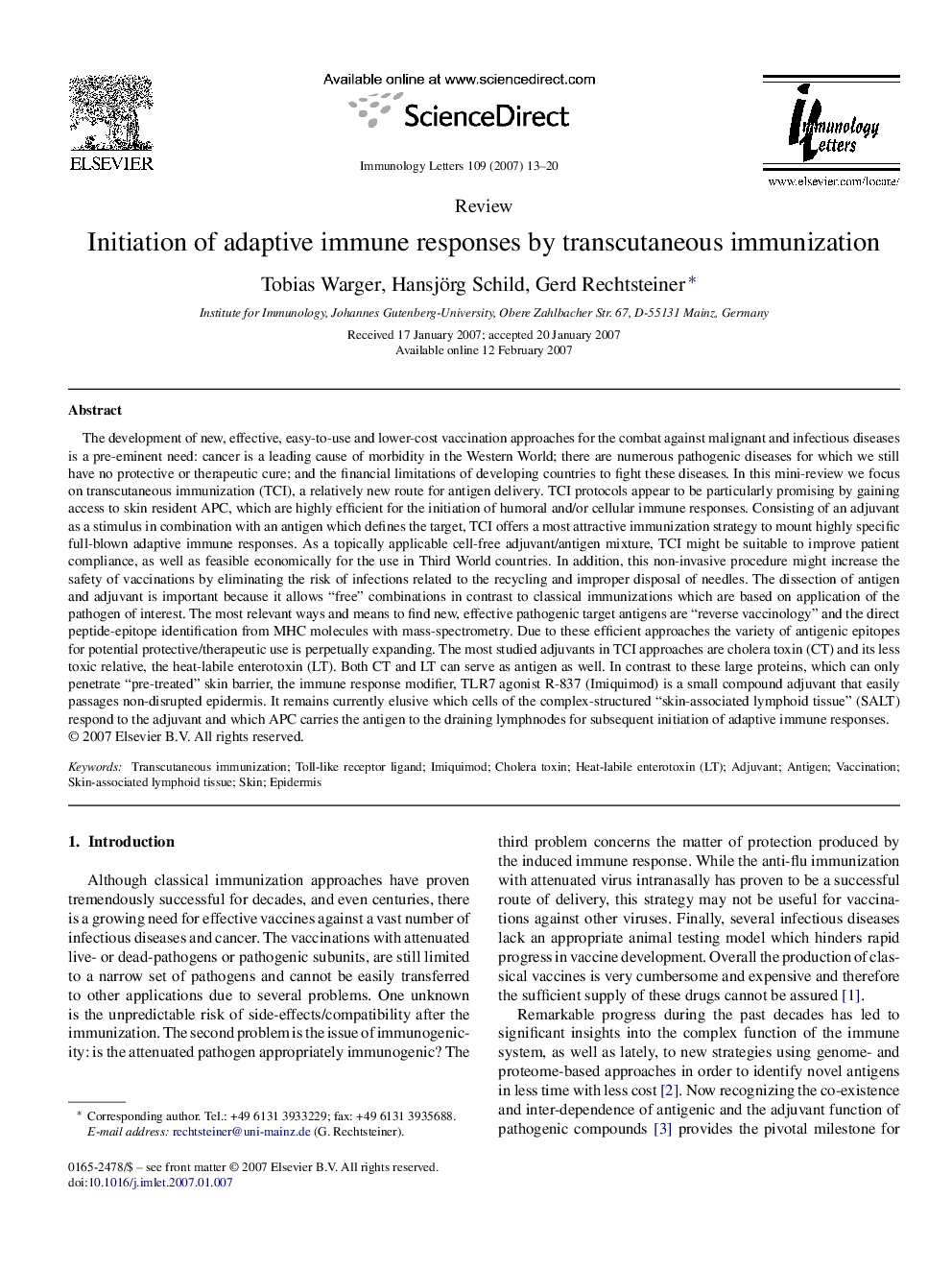| کد مقاله | کد نشریه | سال انتشار | مقاله انگلیسی | نسخه تمام متن |
|---|---|---|---|---|
| 3356332 | 1217256 | 2007 | 8 صفحه PDF | دانلود رایگان |

The development of new, effective, easy-to-use and lower-cost vaccination approaches for the combat against malignant and infectious diseases is a pre-eminent need: cancer is a leading cause of morbidity in the Western World; there are numerous pathogenic diseases for which we still have no protective or therapeutic cure; and the financial limitations of developing countries to fight these diseases. In this mini-review we focus on transcutaneous immunization (TCI), a relatively new route for antigen delivery. TCI protocols appear to be particularly promising by gaining access to skin resident APC, which are highly efficient for the initiation of humoral and/or cellular immune responses. Consisting of an adjuvant as a stimulus in combination with an antigen which defines the target, TCI offers a most attractive immunization strategy to mount highly specific full-blown adaptive immune responses. As a topically applicable cell-free adjuvant/antigen mixture, TCI might be suitable to improve patient compliance, as well as feasible economically for the use in Third World countries. In addition, this non-invasive procedure might increase the safety of vaccinations by eliminating the risk of infections related to the recycling and improper disposal of needles. The dissection of antigen and adjuvant is important because it allows “free” combinations in contrast to classical immunizations which are based on application of the pathogen of interest. The most relevant ways and means to find new, effective pathogenic target antigens are “reverse vaccinology” and the direct peptide-epitope identification from MHC molecules with mass-spectrometry. Due to these efficient approaches the variety of antigenic epitopes for potential protective/therapeutic use is perpetually expanding. The most studied adjuvants in TCI approaches are cholera toxin (CT) and its less toxic relative, the heat-labile enterotoxin (LT). Both CT and LT can serve as antigen as well. In contrast to these large proteins, which can only penetrate “pre-treated” skin barrier, the immune response modifier, TLR7 agonist R-837 (Imiquimod) is a small compound adjuvant that easily passages non-disrupted epidermis. It remains currently elusive which cells of the complex-structured “skin-associated lymphoid tissue” (SALT) respond to the adjuvant and which APC carries the antigen to the draining lymphnodes for subsequent initiation of adaptive immune responses.
Journal: Immunology Letters - Volume 109, Issue 1, 15 March 2007, Pages 13–20